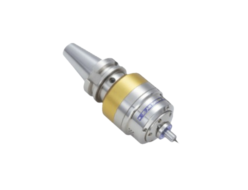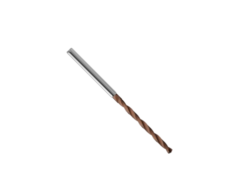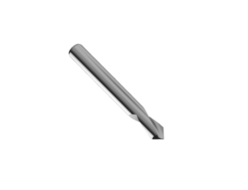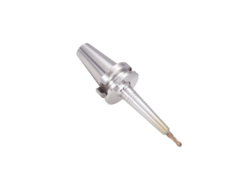- The tool features a spiral groove to improve chip evacuation.
- It has a cylindrical shank for better stability.
- Die steel insert holders provide durability and strength.
- Strong clamping results from the mating serrations on the tool body and insert holders.
- Additionally, coolant-through options are available for both blind hole and through-hole situations.
- The tool uses the commonly accepted Ø 20 mm shank.
- Operators should hold it in a milling chuck.
◆ Balanced and Stepped Cutting
- In balanced cutting, operators set both inserts to the same height and cutting diameter.
- They commonly use this configuration because it’s easier to set, more stable, and allows for higher feed rates due to the two-edge effective tool.
- Moreover, it works better for cast holes or pre-existing holes in weldments, which are often not perfectly round, straight, or aligned (core shift).
- Consequently, the equalized cutting forces in a boring head set for twin cutting are ideal for addressing these issues.
- In contrast, stepped cutting staggers the inserts in both height and diameter.
- The lead insert removes approximately half of the total stock allowance, followed by the second insert, which cuts to the desired output diameter.













